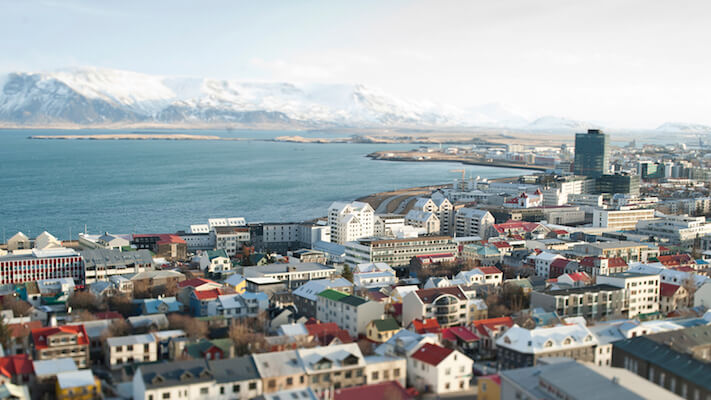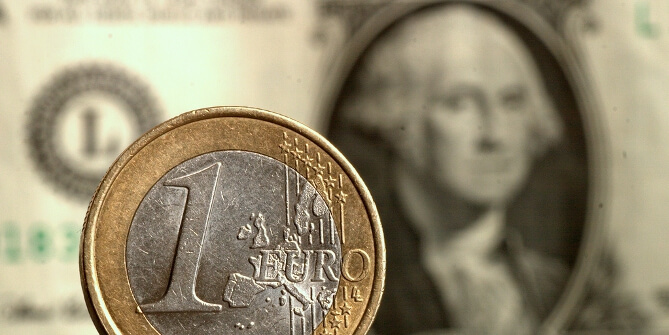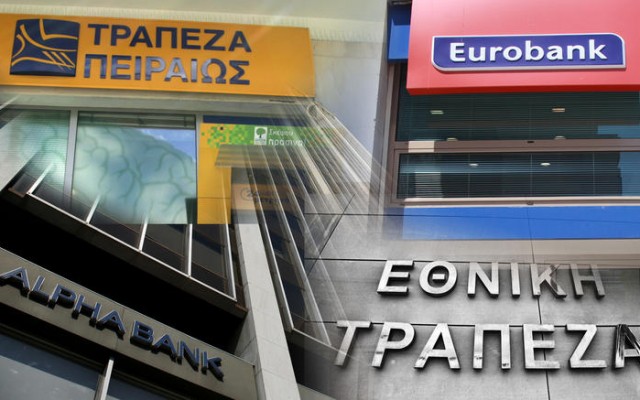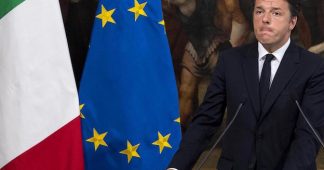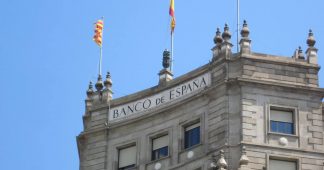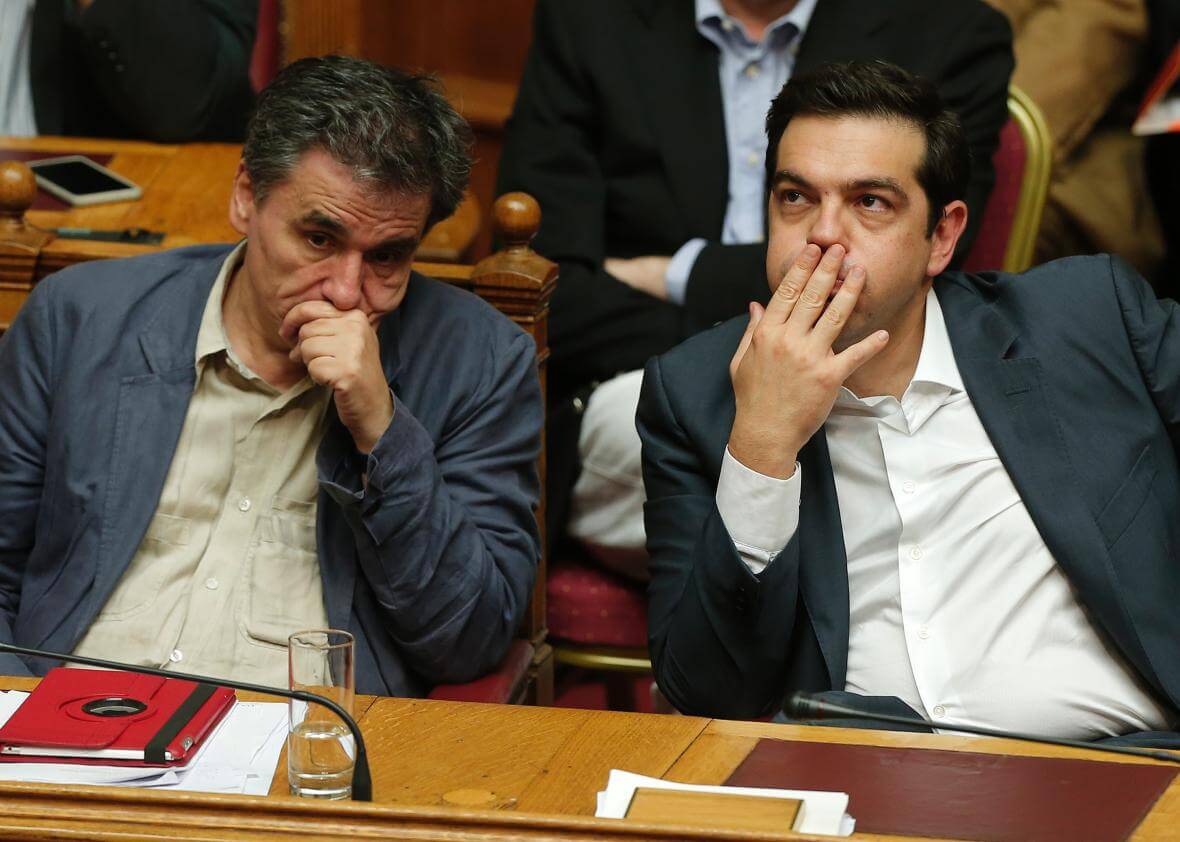Eva Joly interviewed by Renaud Vivien
On 8 December 2015, at the end of his visit to Greece, the UN Independent Expert on Debt, |1| Juan Pablo Bohoslavsky, advised the Hellenic Government “to establish better judicial and administrative accountability for Government officials and decision makers in the private sector” citing the example of Iceland. |2| That small country of 320 000 inhabitants has indeed shown that it is perfectly possible for those responsible for the financial crisis to be prosecuted and condemned to prison sentences. The CADTM interviewed Eva Joly who played a key role as advisor to Iceland’s Special Prosecutor in the criminal investigation and is now MEP for the “Europe Ecologie-The Greens” party. Eva Joly, whom we presented with Éric Toussaint’s latest book, Bancocracy, also discusses how the crisis was managed in Iceland and the pressures brought to bear by its creditors to try to obtain repayment of illegitimate debts.
Before talking about your role as advisor to the Icelandic Special Prosecutor, could you recapitulate the situation of Icelandic banks in 2008?
Like other European countries, Iceland felt the full force of the financial crisis triggered off by the subprimes crisis. In September 2008, the country’s three main banks (Kaupthing,Landsbanki and Glitnir) collapsed and had to be urgently nationalized.
The banks’ failure was due to the financial deregulation that had begun in the 1990s. The banking sector, which had been totally privatized in 2003, then engaged in maximum risk activities to attract foreign capital. In particular, Icelandic banks developed online accounts that enabled them to offer high interest rates defying all competition. As a result, in barely four years the total external debt of those three Icelandic banks had more than quadrupled, from the equivalent of 200% of Icelandic GDP in 2003 to 900% of GDP in 2007! In 2008, when the subprimes crisis hit Iceland, they were unable to find the resources to cover their debts. |3|
Unlike what happened in other European countries, the debts of the banking sector were not transferred to the public sector. They were borne by the banks’ creditors rather than the Icelandic population. This is quite normal, given that the vast majority of Icelandic people were not responsible for the banks’ actions.
The refusal to take on these debts arose from the extraordinary mobilization of citizens, which unfortunately was hardly given a mention by the media. Note that in two successive referenda (in March 2010 and April 2011), the Icelandic people steadfastly refused to reimburse the foreign creditors – mostly British and Dutch savers who had lost money when the online bank Icesave collapsed in 2008. Icesave was the Internet branch of the bank Landsbanki which was offering phenomenal interest rates. The Icelandic government respected the decisions of the referenda, despite protests from the British and Dutch governments. Thus did a population win a victory over its creditors.
What were the demands of the British and Dutch governments?
They demanded that Iceland pay them astronomical sums (over €2.7 billion for the United Kingdom and over €1.3 billion for the Netherlands) along with an interest rate of 5.5%.
Although the Netherlands and the United Kingdom had welcomed the subsidiaries and branches of those Icelandic banks with open arms and despite the fact that the governments of those two countries had been alerted to the risks involved, they decided that it was up to the Icelandic State to guarantee deposits made in Icesave. They fixed the guarantee themselves at between €50 000 and €100 000 per deposit. Yet the European Directive relating to guaranteeing deposits was quite different. |4|
Firstly, the Directive provided for a guarantee of €20 000 per deposit (and even that much was more than the Icelandic government could possibly afford). Secondly, it did not oblige States to guarantee depositors with public money. Indeed, the Directive only required States to set up a Guarantee Fund to which the banks themselves would contribute through compulsory contributions levied by the State.
Not only did the governments of the Netherlands and the United Kingdom shirk their responsibilities |5| and flout European law, but they also attempted the most odious forms of coercion to force the Icelandic government to reimburse those private debts. Fortunately the people resisted and urged the Icelandic President to resort to referenda |6| as a means of rejecting the creditors’ demands.
What were the creditors’ methods of coercion?
In October 2008, the United Kingdom under the premiership of Gordon Brown took extreme retaliatory measures using anti-terrorist legislation. Landsbanki’s assets were frozen as were those of Kaupthing, a bank which had no connection to Icesave. By doing this, they were putting the Icelanders in the same category as organizations like Al Qaida. The British government also used its influence to prevent Iceland from getting any international aid (from the EU or the IMF) until the contested private debts had been reimbursed.
As for the IMF itself, it granted a loan of $2.1 billion conditional upon the implementation of drastic measures aimed at reducing Iceland’s deficit to zero by 2013. That unattainable objective led to swiping cuts in public spending. The IMF also made the payment of the tranches of this loan conditional upon Iceland’s repayment of the private debts (repayments which had been refused by the Icelandic population). Thus the IMF behaved as no less than a debt-collector on behalf of the United Kingdom and the Netherlands!
The European Commission also clearly sided with those two countries since its president at the time, José Manuel Barroso, indicated that there would be no European ‘aid’ until theIcesave case had been resolved. |7| Furthermore, the European Commission was party to the complaint brought by the Netherlands and the United Kingdom against Iceland at the European Free-Trade Association (EFTA) tribunal.
Could you summarize the tribunal’s ruling, please?
The tribunal upheld Iceland’s refusal to pay the debt demanded by the United Kingdom and the Netherlands, and therefore threw out the complaints that the two countries had brought. The ruling made it clear that the country where a banking company has its headquarters is not responsible for guaranteeing that company’s foreign liabilities. The ruling is in perfect harmony with European law since, and I repeat: there is nothing in the European Directives which obliges States to bail out banks with public money.
Let us now talk about the criminal aspect. How did the Icelandic government come to call upon you in 2008 to investigate these banking collapses, and what were the main findings of the enquiry?
To begin with, I had taken part in a talk show on Icelandic television as a legal expert on the topic of financial crimes and offences. The journalist who presented the programme had invited me after reading my book Justice under Siege |8| and also because the population was clamouring for justice, eager to identify and punish those responsible for the crisis.
That programme led to incredible popularity: an Eva Joly Facebook page was set up, which attracted 20 000 internet visitors in one night! I also gave several talks in Icelandic universities. Seeing this enthusiasm, the government asked me to advise them in seeking criminal responsibilities in the banking collapse. So there was a clear political will on the part of the Icelandic government, under the impetus of the population, to take legal action against those responsible for the financial crisis.
Because Iceland’s legal system is very similar to Norway’s, |9| I accepted the proposition on condition that real human resources would be made available to enable me to conduct the investigation. Fortunately, the government agreed and I was able to work with a large team of 84 people composed of several legal experts and financial auditors. My mission as advisor to the Icelandic Special Prosecutor on these matters lasted from January 2009 to October 2010.
Our team was authorized to carry out searches within the subsidiaries and branches of Icelandic banks, such as the branch of Kaupthing in Luxembourg. It should be emphasized that that bank was borrowing fraudulently from the European Central Bank(ECB). The solvency ratio as recommended in the Basel Conventions was absolutely ignored and stock-exchange offences were committed. Other offences were revealed as our investigation progressed.
The most significant outcome of these investigations has been that they gave rise to prosecutions and the condemnation of several dozen high-ranking culprits. Regrettably, as yet there has been nothing of the sort in any other European country.
Who are these culprits and what were they condemned for?
The people prosecuted and condemned by the Icelandic courts occupied various key posts. There were bank CEOs, finance managers, the banks’ lawyers, major shareholders and high-ranking civil servants.
The sentences, some of which are still under appeal, are of up to six years’ imprisonment. The individuals concerned were not allowed to settle’ the procedures out of court through financial agreements and avoid all sanctions as has so often been the case elsewhere, especially in the United States.
The charges brought against them were manifold: manipulation of stock-exchange rates, insider dealing, falsification of accounts, issuing fraudulent loans, etc. The cases were judged by several different courts in Iceland, from the high court to the Supreme Court.
As examples of convictions by the Supreme Court of Iceland we have the former Head of Cabinet in the Ministry of Finance who was sentenced to two years’ incarceration for insider dealing. He owned shares in Landsbanki which he sold just a few days before it collapsed. The former CEO of the bank Byr got four years in prison and the CEO of the bank MP was given one-and-a-half years, both for fraudulent loans. The Magistrates’ Courts sentenced two former Kaupthing CEOs to three-and-a-half and five-and-a-half years’ incarceration respectively. And a major shareholder of Kaupthing got three years’ prison for price manipulation and fraudulent loans. Several of these convicted individuals have appealed against their sentences but they remain in prison for the time being.
There are a further forty-odd ongoing procedures as well as about thirty cases which are still under investigation. So the fight against impunity is far from over in Iceland! It is high time that this political will to prosecute those responsible for the financial crisis spread to other countries.
Interview by Renaud Vivien (CADTM)
Translated by Vicki Briault Manus and Mike Krolikowsky (CADTM)
Footnotes
|1| His precise title is: Independent Expert on the effects of foreign debt and other related international financial obligations of States on the full enjoyment of all human rights, particularly economic, social and cultural rights.
|2| http://www.keeptalkinggreece.com/2015/12/08/un-human-rights-expert-finds-humanitarian-crisis-in-greece-has-worsened-after-5-years-of-fiscal-adjustment/
|3| http://cadtm.org/Islande-Si-la-dette-ne-peut-pas (Article in French or Spanish).
|4| http://eur-lex.europa.eu/legal-content/FR/TXT/?uri=URISERV%3Al24012b
|5| The European directives relative to financial conglomerates indicate that EU member states which authorize such establishments originating in a third country to enter their territory must ensure that the said establishments enjoy the same degree of control on the part of the government of their State of origin as is provided for by European legislation.
|6| On 30 December 2009, the Althingi (Icelandic Parliament) voted a law called ‘Icesave’ in accordance with the demands of the applicant countries, which endorses the repayment of €4 billion to the UK and the Netherlands. This would mean the equivalent of about €100 per inhabitant per month for eight years because of the collapse of a bank making highly hazardous investments. The population rejected this so violently, with a petition and several days of ‘pot-pounding’ in front of Parliament, that President Olaf Ragnar Grimsson did not pass the law. These events raise awareness among part of the population as to the misdeeds of the financial world. They also show that by mobilizing, people can make themselves heard so that, faced with mounting pressure in the streets, the president refused to sign. Instead, he called for a referendum whose outcome would be binding for the government, under the terms of Article 26 of the Icelandic Constitution. On 6 March 2010, with a high level of mobilization, 93% of Icelanders reject the agreement. On 9 April 2011, Icelanders refused, by about 60%, to pay for the errors of those who drove their country into the abyss. They again refused, by referendum, the ‘Icesave’ agreement which stipulated that the State should pay compensation. They thus confirmed their first ‘No’, pronounced in March 2010.
|7| L’Islande ou les faux semblants de la régulation de l’après-crise’, (‘Iceland or the false pretences of post-crisis regulation’) by Eva Joly, Le Monde.fr | 01.08.2009 (in French only).
http://www.lemonde.fr/idees/article/2009/08/01/l-islande-ou-les-faux-semblants-de-la-regulation-de-l-apres-crise-par-eva-joly_1224837_3232.html
|8| http://evajolyinstitute.org/
|9| Eva Joly holds dual nationality, French and Norwegian.
